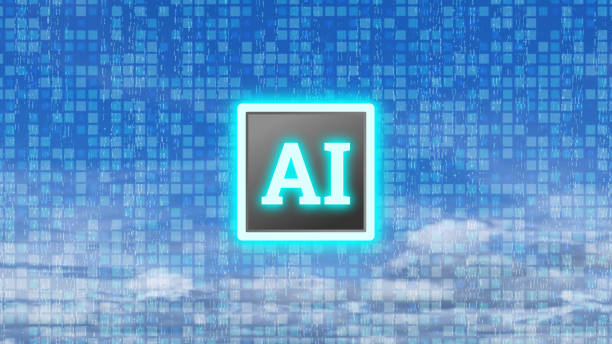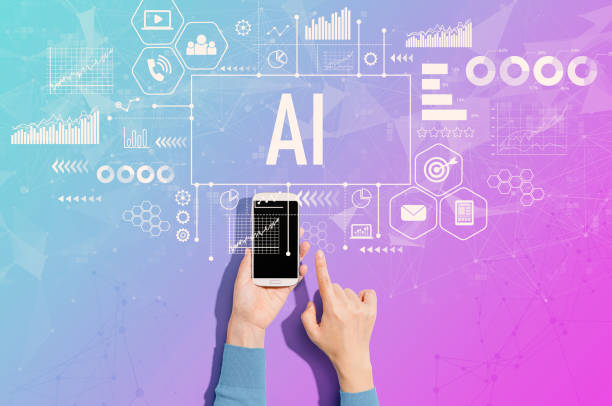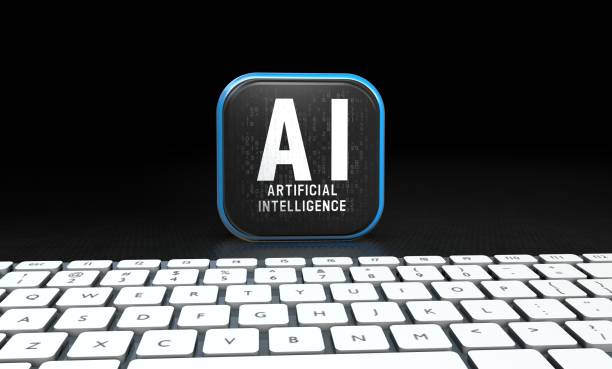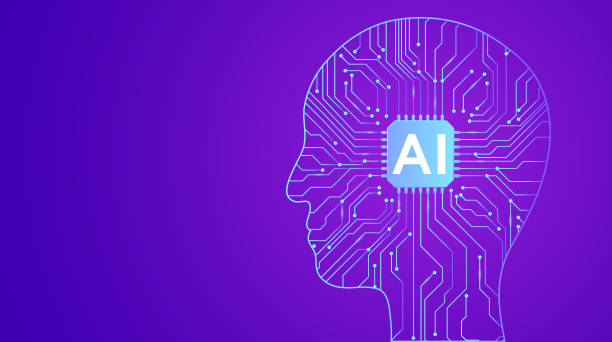Getting Familiar with the World of Mobile AI Applications

Artificial Intelligence (AI) is rapidly changing our world, and mobile AI applications are one of the most important manifestations of this transformation.
In this chapter, we will explore what mobile AI applications are, their benefits, and their applications.
#Artificial_intelligence, beyond being a popular term, is a set of algorithms and techniques that enable machines to perform tasks traditionally requiring human intelligence.
These tasks include learning, reasoning, problem-solving, natural language understanding, and pattern recognition.
Mobile AI applications are software programs that run on mobile devices and utilize AI capabilities to provide enhanced services and experiences to users.
These applications can perform a wide range of tasks, including: improving photo and video quality, providing intelligent virtual assistants, instant language translation, face and object recognition, and suggesting products and services tailored to user needs.
The benefits of using mobile AI applications are numerous.
These applications can help improve productivity, increase accuracy, save time and cost, and provide personalized user experiences.
For example, a mobile AI application can help a doctor diagnose diseases faster and more accurately, or help a farmer optimize water and fertilizer consumption.
With technological advancements, mobile AI applications are expected to play a more significant role in our daily lives.
Are you tired of your company’s website not meeting your expectations? Design a professional website with Rasaweb that truly reflects your business.
✅ Increase attraction of new customers and sales leads
✅ Increase your brand’s credibility and trust among your audience
⚡ Get a free website design consultation!
Architecture and Key Components of Mobile AI Applications

To better understand how mobile AI applications work, it is essential to become familiar with their architecture and key components.
Generally, a mobile AI application consists of three main components: data, AI models, and the user interface.
Data is the primary fuel for AI models.
This data can include text, images, audio, video, or any other type of data used to train AI models.
The more diverse and extensive the data used to train the models, the better their accuracy and performance.
AI models are the brain of mobile AI applications.
These models analyze data using various algorithms and extract hidden patterns and relationships.
AI models can be used to perform various tasks such as face recognition, language translation, and predicting user behavior.
The user interface is the bridge between the user and the mobile AI application.
The user interface should be intuitive, user-friendly, and easy to use so that users can easily interact with the application and benefit from its capabilities.
In designing the user interface of mobile AI applications, paying attention to user feedback and providing appropriate guidance is very important.
The Role of Machine Learning in Smart Mobile Applications

Machine Learning (ML) is one of the most important branches of artificial intelligence that plays a vital role in the development of smart mobile applications.
Machine learning enables machines to learn from data and improve their performance without explicit programming.
In mobile applications, machine learning can be used for various tasks such as pattern recognition, predicting user behavior, and providing personalized recommendations.
For example, an online shopping application can use machine learning to analyze a user’s purchase history and provide product recommendations tailored to their taste.
Or a navigation application can use machine learning to predict traffic and provide the best route to the user.
There are different machine learning algorithms, each suitable for a specific type of data and task.
Some of the most common machine learning algorithms used in mobile applications include: linear regression, logistic regression, decision tree, support vector machine, and neural networks.
Choosing the right algorithm for a specific application depends on the type of data, the volume of data, and the application’s objectives.
| Machine Learning Algorithm | Application in Mobile App |
|---|---|
| Linear Regression | Product Price Prediction |
| Logistic Regression | Spam Detection |
| Decision Tree | Product Recommendation |
Best Programming Languages for Developing Mobile AI Applications

Choosing the right programming language for developing mobile AI applications is a crucial decision that affects the application’s performance, scalability, and ease of development.
There are various programming languages for developing mobile AI applications, but some are more popular and suitable due to their specific features and libraries.
Python is one of the most popular programming languages for AI development.
Python has powerful libraries such as TensorFlow, PyTorch, and scikit-learn, which make it easy to develop machine learning models.
Also, Python has a simple and readable syntax that makes it easy for developers to learn and use.
Java is another popular programming language for developing mobile applications.
Java has an extensive ecosystem of tools and libraries that facilitate the development of AI applications.
Also, Java is an object-oriented programming language that makes it easy to develop complex applications.
Kotlin is a modern programming language officially supported by Google for Android application development.
Kotlin has a clean and concise syntax and is compatible with Java.
Also, Kotlin has advanced features such as functional programming and concurrency, which make AI application development more efficient.
C++ is a powerful programming language suitable for developing high-performance applications.
C++ is used for developing machine learning models and AI libraries.
Research shows that 80% of customers trust companies with professional websites more. Does your current site inspire this trust?
With Rasaweb’s corporate website design services, solve the problem of customer distrust and a weak online image forever!
✅ Create a professional image and increase customer trust
✅ Attract more sales leads and grow your business
⚡ Get a free consultation!
Challenges and Limitations of Implementing AI in Mobile

Implementing artificial intelligence on mobile devices comes with specific challenges and limitations.
One of the most important challenges is the limited computational resources of mobile devices.
Mobile devices have weaker processors and less memory compared to servers and personal computers.
This resource limitation makes it difficult to run complex AI models on mobile devices.
Power consumption is another challenge of implementing AI in mobile.
Running AI models can increase a mobile device’s power consumption and reduce battery life.
Data privacy and security are also important concerns in implementing AI in mobile.
Mobile AI applications usually access sensitive user data such as personal information, location, and web browsing history.
Maintaining the privacy and security of this data is of paramount importance.
One solution to overcome these challenges is using model optimization techniques.
Model optimization techniques can reduce the size and complexity of AI models, making them easier to run on mobile devices.
Using cloud computing is another solution to overcome the computational resource limitations of mobile devices.
In this method, part of the AI processing is done on cloud servers, and the result is sent to the mobile device.
Using Federated Learning can also help maintain data privacy and security.
In federated learning, AI models are trained in a distributed manner on mobile devices, and user data does not leave the device.
Introducing Examples of Practical Mobile AI Applications

Mobile AI applications are used in various fields including health, education, entertainment, and commerce.
In this chapter, we will introduce a few examples of practical mobile AI applications.
Google Lens is an AI application that allows users to get information about objects and places around them using their phone’s camera.
Google Lens can translate text, find product information, and identify landmarks.
Socratic is an educational application that helps students solve academic problems.
Socratic can solve math, science, and history problems and provide related explanations and educational resources.
ELSA Speak is a language learning application that helps users improve their pronunciation.
ELSA Speak uses AI to analyze user pronunciation and provide accurate feedback.
FaceApp is an entertainment application that allows users to make various changes to their faces.
FaceApp can age or rejuvenate a user’s face, change their gender, and add a smile.
Coursera is an online learning platform that uses AI to provide personalized training courses to users.
Coursera can suggest suitable training courses based on the user’s knowledge level and interest.
These are just a few examples of practical mobile AI applications.
With technological advancements, more mobile AI applications are expected to become available, making our daily lives easier and more efficient.
Security and Privacy in Mobile AI Applications

As mentioned earlier, data security and privacy are important concerns in implementing mobile AI applications.
Mobile AI applications usually access sensitive user data such as personal information, location, and web browsing history.
Maintaining the privacy and security of this data is of paramount importance.
One solution for maintaining data privacy and security in mobile AI applications is using encryption.
Encryption can protect data from unauthorized access.
Using two-factor authentication can also help increase the security of mobile AI applications.
Two-factor authentication requires the user to enter a verification code in addition to their password.
Transparency about how data is collected and used is also very important.
Mobile AI applications should clearly explain to users what types of data they collect, how they use this data, and how they protect this data.
| Security Threat | Countermeasure |
|---|---|
| Unauthorized Data Access | Data Encryption |
| Phishing Attacks | Two-Factor Authentication |
| Data Misuse | Transparency on Data Collection and Use |
What Will Be the Future of Mobile AI Applications?

The future of mobile AI applications is very bright and full of potential.
With technological advancements, mobile AI applications are expected to become more powerful, intelligent, and practical.
One of the important trends in the future of mobile AI applications is the increased use of Deep Learning.
Deep learning is a branch of machine learning that enables machines to learn complex patterns from data.
The use of deep learning can significantly improve the accuracy and performance of mobile AI applications.
The integration of AI with the Internet of Things (IoT) is another important trend in the future of mobile AI applications.
By integrating AI with IoT, smart devices can automatically interact with each other and provide more personalized services and experiences to users.
Increased focus on data privacy and security is also among the important trends in the future of mobile AI applications.
As users become more aware of the importance of data privacy and security, mobile AI application developers are expected to pay more attention to this issue and use more advanced techniques to maintain data privacy and security.
Mobile AI applications are becoming an integral part of our daily lives and will play an even more significant role in the future.
Are you worried that your company’s old website will drive away new customers? Rasaweb solves this problem with modern and efficient corporate website design.
✅ Increases your brand credibility.
✅ Helps attract targeted customers.
⚡ Contact Rasaweb for a free consultation!
Key Tips for Successful Mobile AI Application Development

Developing a successful mobile AI application requires careful planning, selection of appropriate technologies, and attention to user experience.
In this chapter, we will discuss key tips for successful mobile AI application development.
Clearly defining the application’s goals is the first step towards developing a successful mobile AI application.
It should be clearly specified what problem the application solves, what need it addresses, and what value it offers to users.
Choosing appropriate data for training AI models is crucial.
Data should be relevant, accurate, and diverse.
Using inappropriate data can lead to reduced application accuracy and performance.
Selecting suitable machine learning algorithms is also important.
Different algorithms are appropriate for specific types of data and tasks.
Optimizing AI models for efficient execution on mobile devices is essential.
Models should have low size and complexity to run quickly and with low power consumption on mobile devices.
Designing an intuitive, user-friendly, and easy-to-use user interface is very important.
Users should be able to easily interact with the application and benefit from its capabilities.
Continuous testing and evaluation of the application are necessary.
The application’s performance should be constantly tested, and user feedback should be collected to identify and fix bugs and issues.
Maintaining data privacy and security is of paramount importance.
Advanced techniques should be used to protect user data privacy and security.
Learning Resources and Development Tools for Mobile AI Applications

Developers interested in developing mobile AI applications can use various learning resources and development tools.
Online courses are one of the best ways to learn AI and machine learning concepts and techniques.
Online learning platforms such as Coursera, edX, and Udacity offer various courses in AI and machine learning.
Software libraries are powerful tools that developers can use to develop AI models and AI applications.
Some of the most popular software libraries for AI development include: TensorFlow, PyTorch, and scikit-learn.
Datasets are collections of data that can be used to train AI models.
Various datasets are available that can be used to train AI models in different domains.
Development tools are tools that developers can use to develop, test, and deploy AI applications.
Some of the most popular development tools for AI application development include: Android Studio, Xcode, and Visual Studio.
Online communities are places where developers can connect with each other, ask questions, and share their experiences.
Various online communities exist for AI development, such as Stack Overflow and Reddit.
By using these learning resources and development tools, developers can acquire the necessary skills to develop mobile AI applications and create innovative and practical applications.
Mobile AI applications offer many opportunities to solve problems and improve people’s lives.
Frequently Asked Questions
| No. | Question | Answer |
|---|---|---|
| 1 | What is a mobile AI application? | A mobile AI application is a program that uses artificial intelligence capabilities (such as machine learning, natural language processing, computer vision) to provide smarter and more automated experiences on mobile devices. |
| 2 | Why is AI important in mobile applications? | Its importance is due to increased efficiency, personalized user experience, task automation, improved decision-making, and providing innovative features like facial recognition or voice assistants. |
| 3 | What are examples of mobile applications with AI? | Voice assistants (like Siri, Google Assistant), navigation apps with real-time traffic (Google Maps), image filters (Snapchat, Instagram), language translation apps, and facial recognition applications. |
| 4 | What challenges exist in developing mobile AI applications? | Hardware limitations of mobile devices (processing power, battery), need for large and high-quality data, protecting user privacy, and complexity of implementing AI models. |
| 5 | What is the role of machine learning in these applications? | Machine learning allows the application to learn from data, identify patterns, and improve its performance over time, such as in product recommendation systems or speech recognition. |
| 6 | Do mobile AI applications require an internet connection? | Many advanced AI capabilities require an internet connection and cloud processing, but some lighter models can also work “on-device” (without internet) with processing limitations. |
| 7 | How does AI help improve user experience on mobile? | By personalizing content, predicting user needs, automating repetitive tasks, and providing more natural user interfaces like voice commands. |
| 8 | What is the difference between cloud AI and on-device AI in mobile? | Cloud AI uses powerful servers for processing (requires internet), while on-device AI performs processing directly on the phone itself (no internet required, but with processing limitations). |
| 9 | What will be the future of mobile AI applications? | We expect to see increased personalization capabilities, deeper integration with phone sensors, development of smarter assistants, and advancements in on-device processing. |
| 10 | Which frameworks are popular for AI development in mobile? | TensorFlow Lite (for Android and iOS), Core ML (for iOS), PyTorch Mobile are among the popular frameworks for implementing AI models in mobile applications. |
And other services of Rasaweb Advertising Agency in the field of advertising
Smart Brand Identity: An effective tool to increase click-through rates with attractive UI design.
Smart Google Ads: A novel service to improve SEO ranking through precise audience targeting.
Smart Brand Identity: Designed for businesses seeking to increase sales through attractive UI design.
Smart Sales Automation: An effective tool to increase click-through rates with attractive UI design.
Smart Sales Automation: A combination of creativity and technology for campaign management through custom programming.
And hundreds of other services in internet advertising, advertising consultation, and organizational solutions.
Internet Advertising | Advertising Strategy | Advertorials
Sources
Complete Guide to Mobile AI Application Development
The Future of AI in Mobile Applications in Iran
Introducing the Best AI Tools for Mobile
Monetizing Mobile AI Applications
? Are you ready for your business to shine in the digital world? Rasaweb Afarin Digital Marketing Agency, by providing comprehensive solutions including fast and professional website design, SEO, and content marketing, helps you achieve your goals. With us, experience a powerful and influential online presence.
📍 Tehran, Mirdamad Street, next to Bank Markazi, Kazeroun Jonoubi Alley, Ramin Alley, No. 6




